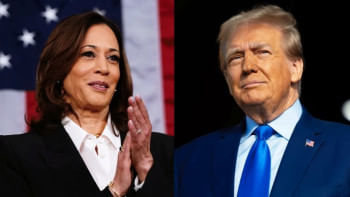Indian cabinet approves two more deals
The Indian cabinet yesterday approved two separate agreements, to be signed during Prime Minister Narendra Modi's visit to Dhaka next week, to fight human trafficking and introduce coastal shipping service with Bangladesh.
The cabinet, chaired by the prime minister, approved the signing of the Memorandum of Understanding (MOU) on prevention of human trafficking, especially trafficking in women and children, and rescue, recovery, repatriation and reintegration of the victims.
"Human trafficking has emerged as a big problem. The MoU is an effort in the direction of preventing trafficking," Telecom Minister Ravi Shankar Prasad told reporters after the meeting.
An official statement said the MoU would help strengthen cooperation to prevent all forms of the human trafficking, especially that of women and children and ensure speedy investigation and prosecution of traffickers and organised crime syndicates in both the neighbouring nations.
The pact will also ensure repatriation of victims as expeditiously as possible. After repatriation, the home country will ensure safe and effective reintegration of the victims with their families, the statement said.
A taskforce of India and Bangladesh was constituted to take coordinated action against individuals, touts and agents involved in human trafficking.
The taskforce has met four times so far. During its fourth meeting held in Mumbai on April 6-7 last year, both sides finalised the text of the draft MoU on prevention of human trafficking, the statement pointed out.
The cabinet also cleared the agreement on coastal shipping between India and Bangladesh for movement of goods between the two countries.
Indian ports serving as trans-shipment points for Bangladeshi cargo will benefit by the enhanced throughput as a result of Indo-Bangladesh coastal trade, the statement said, adding that both nations will render the same treatment to the other country's vessels as it would have done to its national vessels used in international sea transportation.
"Exim trade between India and Bangladesh would be benefited by way of reduction in freight charges. It will also improve the utilisation of port capacities of Indian ports and open up new opportunity for Indian coastal vessels. It will also help in decongestion of roads especially at land custom stations/integrated check posts at the Indo-Bangladesh border," the statement said.
Currently, there is no significant cargo movement between the sea ports of Bangladesh and India as it isn't deemed profitable for the big ocean-going vessels to operate between the ports of the two countries.
Therefore, to reduce the cost of shipping operations, a lower but pragmatic standard of vessel known as River Sea Vessel (RSV) has been prescribed for the job.
The RSV category has significantly lower construction and operation costs without compromising on safety. Both countries have agreed on this.
Bangladesh is now India's largest trade partner in South Asia, thanks to the rapid growth in the past few years.
The commencement of coastal shipping between the India and Bangladesh will increase bilateral trade between the two countries and cut the cost of transportation.


 For all latest news, follow The Daily Star's Google News channel.
For all latest news, follow The Daily Star's Google News channel. 



Comments